“Our martini represents the consistency of the Connaught Bar”: Agostino Perrone, Giorgio Bargiani and Maura Milia on what makes their bar the world’s best
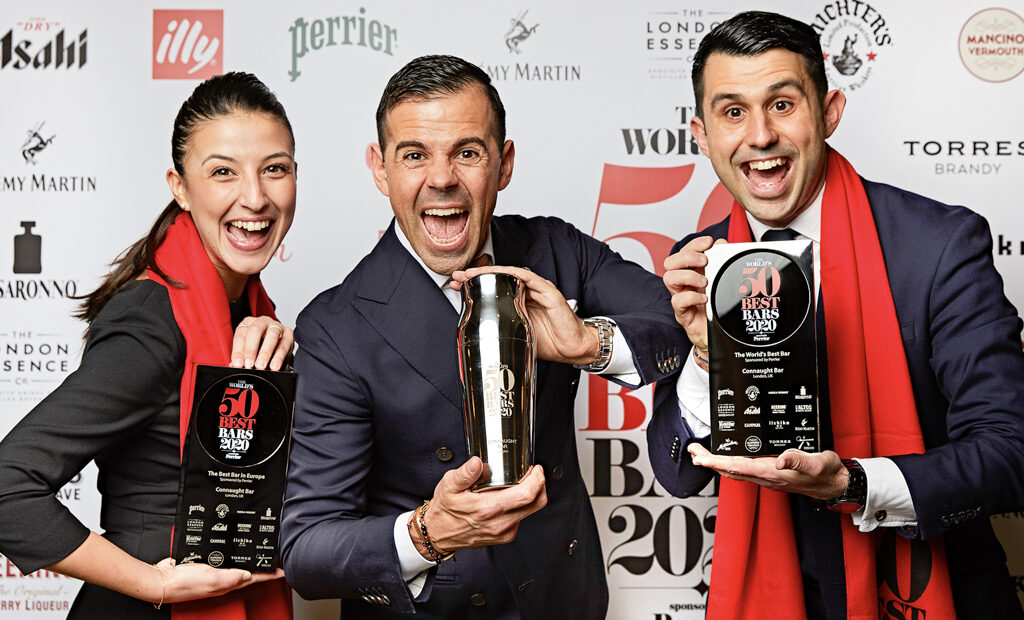
After ten years, Connaught Bar, one of the most respected in town, was voted the best in the world. London once again reclaims the top spot in the yearly list of the World’s 50 Best Bars, which sees the British capital in a fight with New York City every 12 months. We speak with the three main people behind the Mayfair hotspot, famous for its martini trolley: Agostino Perrone, Giorgio Bargiani and Maura Milia. From finally being voted number one to the unique process of selecting their bartenders and the struggles of surviving through a pandemic, the trio tell us all about the Connaught.
Congratulations for this amazing achievement
Agostino Perrone: Thank you, it’s a pinnacle of … It’s a belief, it’s a lifestyle… More than ten years of building up to this moment in some ways. This is a dot of a page of our history and our professional career, a very big dot, that is probably the turning page of something else. Everyone is trying to achieve something new, something else, and this will give us the pride and the creativity to surprise our guests and motivate our team.
The Connaught Bar has an incredible reputation already. Does going to the top spot change things for you? How important is it?
AP: It’s very important because a recognition [of this magnitude] is an injection of energy, of creativity for our team, therefore our team are going to project it to our guests. And being in the top ten in the last 11 years in the 50 best bars, we are very proud. Today is a liberation of a dream, a celebration of an achievement that we were looking for that gives our guests even higher expectations from now on.
Today is sadly the first day of the second lockdown, but I wanted to ask about the first lockdown. What have you done at the bar? Have you been trying to reset, maybe focus again on what you do? Did you change your menu?
Giorgio Bargiani: Yeah, we made some adjustments. Between March and September when we reopened we did different activities on different levels. The first one was reactive. What we do, we take care of people on normal days, we make them feel comfortable, at their ease, and we please them in every way that we can. We wanted to do the same, so digitally was the only way we could do that. So we wanted to send positive messages to everyone: guests, team, the bar community. As we all know the hospitality industry globally has probably been hit the hardest, or one of the hardest, so we didn’t want anyone to give up or back down, so every single activity that came to us, every opportunity that we had to talk publicly throughout social media or other platforms, we used to make sure that this passion, this job, this heart – call it as you like – wouldn’t die. That was the first thing that we did reactively, as soon as it started, we didn’t wait one day to dig into these opportunities.
When people started to get used to lockdown and find their way of doing something else or adapted businesses, keeping the focus on them we shifted our team and we kept them entertained with activities such as internal training, a new menu that we developed throughout lockdown, internal competition, showing them a way of doing our job in different ways: creating digital content, creating glassware or whatever they could create at home and then share it with us. We looked at what we were doing before and adapted to what it would be after lockdown. So many of the great ideas that we applied to the bar since the 17th September, when we reopened, they actually came from the team. We aim to mentor our guys and our girls every day, so we didn’t want to stop because of the lockdown. We didn’t want to say, “ok, it’s not under our control so we can’t be behind the scenes”. No, we always put our face and our name on whatever we do, and as dramatic and terrible as the situation could be these days, we never for a second thought to let it go.
AP: I think we’ve been very aware of modern times, when technology can really support what we do. The first lockdown was an example. We developed the team even further, every single team member at the Connaught Bar, and collaborated with the management in order to strive for a better experience for us as an employee, and as a guest to visit.
Do you think high-end bars like yours can enter the takeaway market?
AP: Takeaway is a market now. We do some takeaway; it depends on the area in the city, which might have more or less traction. We do some of our classics like the Connaught Martini, in a ready-to-use bottle, with the signature bergamot and ginseng bitter, and a negroni with orange leaf bitter from Sicily. We like to keep it classic with a modern interpretation. So yes it does very well.
Then each place has its own rules, and its own set of licensing, depending on which city you are, which country you are. It’s doing well for us.
MM: And our guests as well.
AP: It helped the brand for sure.
GB: If I can add a little note, the Connaught, the hotel that we were in, has been extremely supportive throughout and they still want us to deliver our message 100%. So, definitely, that has been a plus for us to keep our positivity and keep our mindset to carry on.
What’s the most special cocktail for you that is available at the Connaught for your guests?
GB: The answer is all the same.
MM: Yes, it’s a very mutual answer.
AP: Sometimes simplicity can unfold so many words that you never experienced before. As Maura explained, the experience of the Connaught Martini at the Connaught Bar.
MM: The Connaught Martini is the one that gives us the opportunity to interact with our guests, to have the opportunity to share what we love, the lifestyle of the Connaught Bar, and to put it into a glass and share it with our guests. From the very beginning when the guest orders it, until the very last moment as we pour it into the glass and serve it to the guest. The Connaught Martini, it is the most iconic cocktail as it has been for the past 12 years, and you know today we are here after 11 years because what I believe to be our consistency of the Connaught Bar – and the Connaught, I think, is the cocktail. It represents the consistency of the Connaught Bar. Whoever is coming, even though they had it probably like many times, it’s a timeless cocktail. So the interaction, whether it’s myself or Giorgio or Agostino who is making the cocktail, every time is always unique. I’m not sure if you’ve had a Connaught Martini before, so…
AP: William, you’ve had it many times; tell us about the experience from the “other side of the trolley”.
William Drew: People are coming to places like the Connaught Bar because they don’t want something ordinary, they want something extraordinary and the Connaught Martini is the embodiment of that – some theatre and elements of hospitality and service but also of course a great, beautifully balanced drink itself. So, it sums it up. And as Maura said, the consistency is one of the main reasons that the bar has been so successful for so long, and is still at the top. It’s not a short-term success, and I have every faith that with this team here that the Connaught will continue to be successful for years to come.
GB: And now we have some numbers that I’m going to lay out, Filippo. In normal days – one year ago – our monthly average of martini sales was roughly between 1,200 and 1,500 a month.
AP: Not in winter, not considering Christmas.
GB: Like September, October I would say. The second cocktail – the second bestseller – would not reach 400 [a month]. So there’s a big gap between the most popular drink and everything else. You know we put the same effort – don’t get me wrong – but, you know, the Martini is something that people really come for.
AP: Simplicity, most of the time, it gives the space for more complexity, because more simple drinks are the easiest to unbalance. So you need to make sure that you’re balancing the ingredients but you’re balancing the way you express the ingredients and you do the ritual. The Connaught Martini is the expression of that.
What does it take to become a bartender and the Connaught Bar?
AP: Well, an interview during which we assess not the knowledge here but the attitude, the personality. And then it takes one year – despite the experience that you have – one year, starting from level one and then slowly reaching toward what could be the dream come true. Giorgio is the head of mixology, and he really is assessing every single one of the team members as they come to see us because they want to be a bartender and to make sure they buy into the mentality. If they don’t have it, then you make sure they buy into the mentality in the sense.
GB: Ok, so the 18th of September 2014, I got a job as barback at the Connaught Bar. Today I feel like I’m the best barback the Connaught Bar ever had. Just because the way we work is a mindset, as I would say a mentality. It doesn’t matter what your tasks are, you just learn the Connaught Bar way of doing things – and of course, with time and with promotions and with more experience, you introduce different tasks that are closer to management rather than operation. But, year after year, you don’t change the way you work. And being all on the same path, and all following this mentality, that’s how you become a bartender at the Connaught Bar. It’s not being the most unique, it’s not being the greatest cocktail historian; it’s like following Ago’s dream, as I did more than six years ago and I’m still doing every day that I go through the Connaught Bar doors.
Do you have a favourite bar in London?
GB: Connaught Bar, no?
Apart from the Connaught Bar?
MM: Many different, you know.
AP: London is London. You cannot say you have a favourite bar because it depends on how you feel and who you are with, which time of the day.
GB: What you’re up to.
AP: I love to be a regular guest at Connaught Bar. I think in 12 years I’ve been here maybe four or five times as a guest, but as much as you can try to detach, I love many places, from the more classy places to the more innovative places in different areas of London. London is London, London is a cocktail. London lets you grow as a person, it’s a place where you land and the first glass is like: wow, what’s going on here? You live with people from all other countries, all other continents. As you wake up, you learn. You learn from Mexico, you learn from South America and you learn from African countries, Asia – whatever. And when you start to work with those people as well, it is what it is.
MM: There can’t be a favourite bar, because we have so many favourite people.
GB: We can give you lists rather than a favourite.
AP: We can give you a 50 Best list of London.
MM: Every time we’ve been going to these places because at that time that was our favourite place to go. But there’s not one that we choose, we select, as the only one. Yeah, so all are favourites.
WD: Quick question from me guys. Obviously from lockdown, from when you reopened in September until yesterday, the hotel is not full of the same international guests that you usually have. You usually have a very international clientele – as well as, you know, people from London itself. How have you noticed that change, and has it changed the way you work at all?
AP: You know, it’s – I don’t know how to explain it. Yes, there’s less international clientele, but luckily Europe for several weeks was open. So business people that were already regulars at the Connaught, coming to the Connaught for business, with their business in London, and as a consequence they were regulars at the Connaught Bar. So of course, we miss that – and we notice less variety – however we are lucky enough that Connaught Bar has always been full, every single day. Once you open the door of the Connaught Bar, it’s a different world. There is no nationality, there is no where you live, whether you’re here for business – we all become one. It’s like you mix the perfect Martini – if the Martini is good it doesn’t matter if you use a gin, what gin, vodka, which vodka, vermouth, which vermouth – it’s good, that’s it.
GB: We always want to be the ambassador of the bespoke experience, so every guest is different and special, because for every guest we want to create a unique experience. So if one day we have only local people, it doesn’t matter that we treat them all the same way, just because they are local. If we have international locals, we are not going to treat them the same way again because you know we want to give something unique to everybody as much as we can of course. So basically, probably the way we approach them may look similar and sound similar, but we always find an angle where we can make it unique for them.
AP: I think our strength is that we don’t judge from the appearance, we are in England, so you can have a guest who is British but hasn’t lived in England or hasn’t been in Britain for 20 years because he’s somewhere else in the world, but we don’t know that and we don’t want to judge that. So we just make his experience the best as possible, despite if he lives in Mayfair, if he lives in Oxfordshire, or Scotland, Wales
GB: Asia
AP: Doesn’t matter, because it’s all one.
MM: And also, what lockdown taught us, obviously there is all these restrictions on travelling, so a lot of people couldn’t travel from around the world, so a lot of guests that we had were regular guests that were travelling around the world and would typically stay at the Connaught, you know this was a big opportunity to realise how many guests we have local like a local community, and it was beautiful to actually to see how many people we have in London and around London or the UK who come around to see us. It’s like not much was happening, people couldn’t travel, so this is the most beautiful opportunity to see how much we are actually loved from around London and around the UK, so for us it’s a beautiful opportunity to look out for them and to realise actually how many people we have around joining us. So yeah, it’s great.
AP: We’re not British, but we’re Londoners.
Thank you guys, congratulations.
Filippo L’Astorina, the Editor

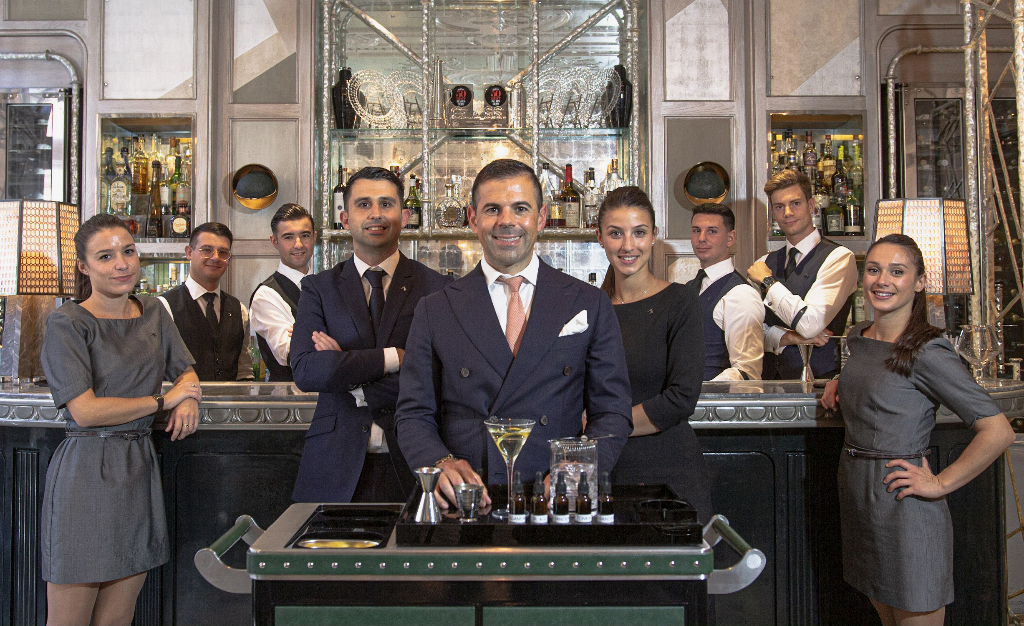
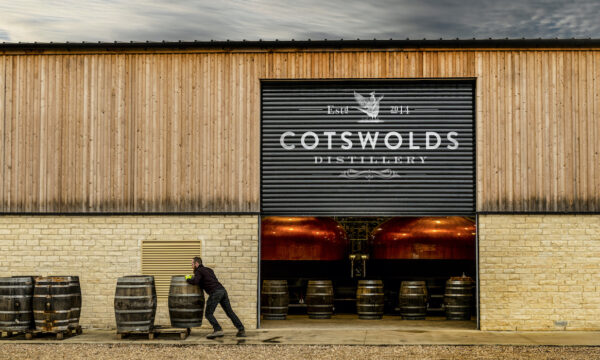
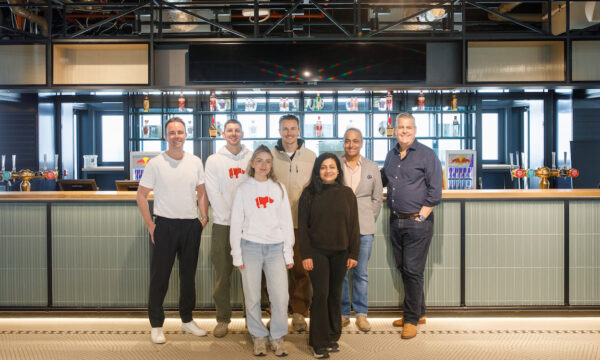
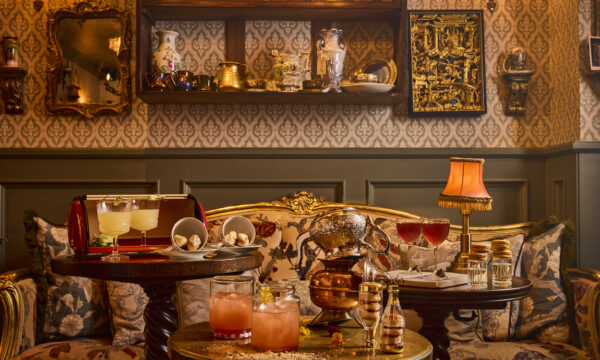
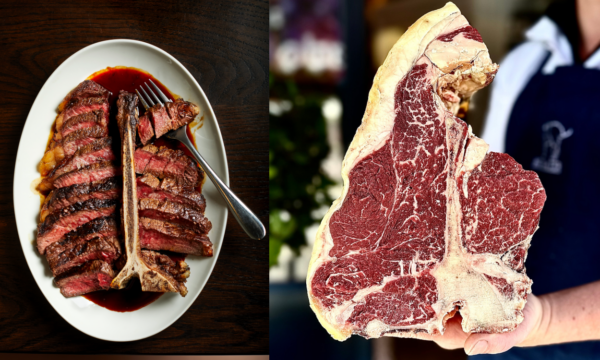
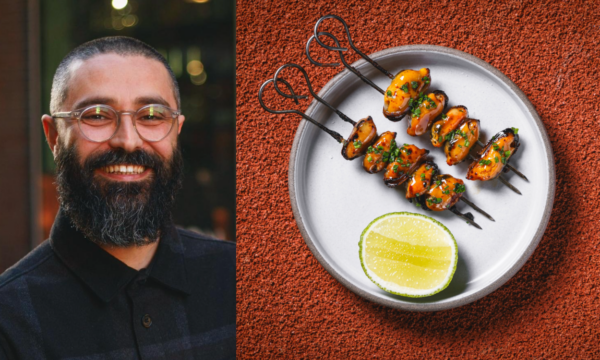
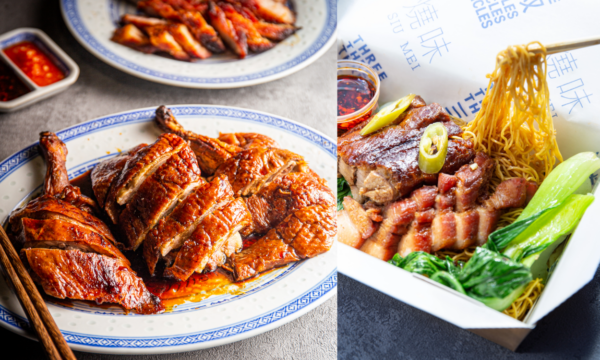
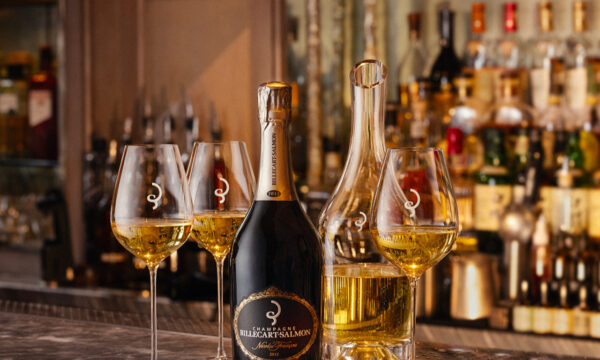
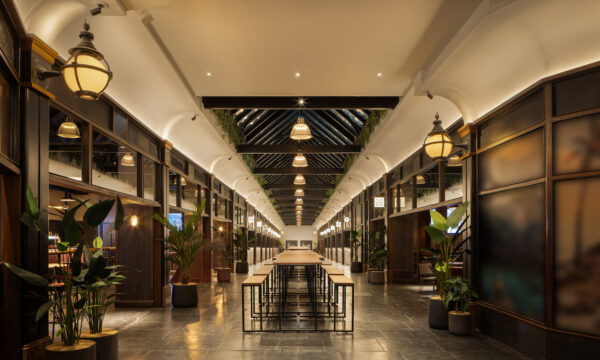
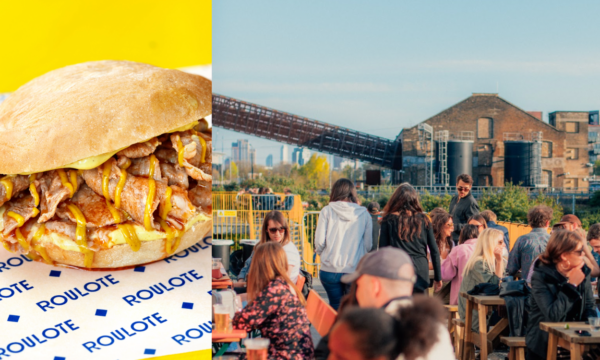














Facebook
Twitter
Instagram
YouTube
RSS